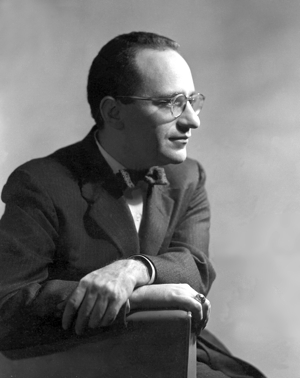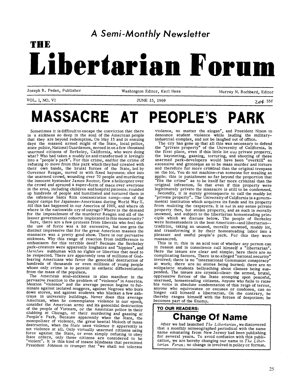
The Mises Institute has made available an electronic version of Rothbard’s important “newsletter”, called The Libertarian for the first few issues, and then afterwards The Libertarian Forum, which played an important role in the early years of the modern libertarian movement. It can be found at its website in ePub and facsimile PDF versions here.
Facsimile PDF version: The Complete Libertarian Forum 1969-1984. Edited by Murray N. Rothbard. Volume 1: 1969-1975 and Volume 2: 1976-1984 (Auburn, Alabama: Ludwig von Mises Institute, 2006).
ePub version: The Complete Libertarian Forum 1969-1984. Edited by Murray N. Rothbard. (Auburn, Alabama: Ludwig von Mises Institute, 2012).

Unfortunately neither version is as useful to researchers as they could be since they are not easily searchable. I do not understand why they would spend so much money to make these “electronic books” available in their “electronic bookshop” and not take the extra step of coding them properly so they could become part of an even more useful “electronic research library” with proper bibliographical information for each title, books and authors categorized according to period, subject area, and topics, and key word searchable for academic citation purposes. This proper coding would mean using a standard academic library DTD such as the TEI P4 of the TEI Consortium (Text Encoding Initiative).
Fortunately they published the volumes under the Creative Commons Attribution License 3.0. so I could put online this “improved” and hopefully more useful version.
The source of my frustration was my desire to find out more information about a couple of matters relating to Rothbard’s intellectual evolution, specifically:
1. when exactly Rothbard began using the term “anarcho-capitalism” in his writings
2. when and how he charged his mind about using the term “class”, which he put in quote marks because he shared for some time Mises view that “caste” was a better term for classical liberals to use.
Ideally, the Mises Institute should have coded all of Rothbard’s works (as well as all the others in their collection) in such a way that scholars could search for key terms like these across his entire body of work, find where they occur, and read further accordingly. Unfortunately this is not possible. Instead, one has to download each book from its digital bookshop shelf, and figuratively “flick through” each one in a laborious fashion, and then do the same for the next one off the shelf.
The coding and citation methods I developed for Liberty Fund’s Online Library of Library is one model to follow.
I will post soon on what I found about the use of “anarcho-capitalism” in the pages of The Libertarian Forum.
